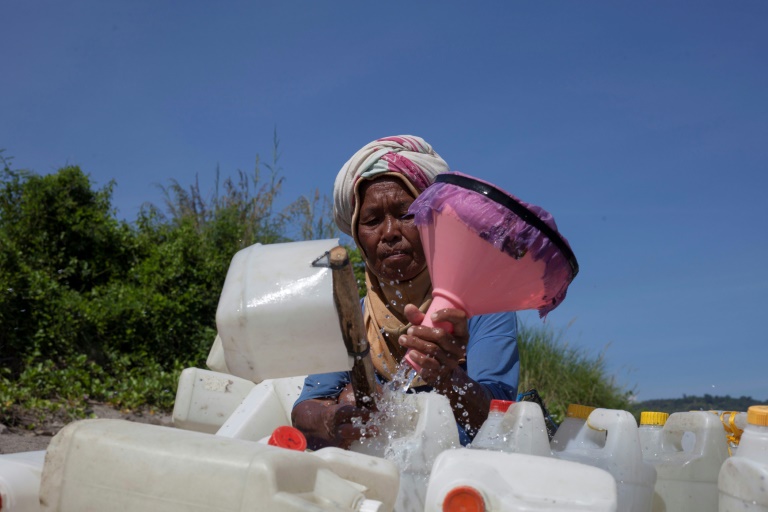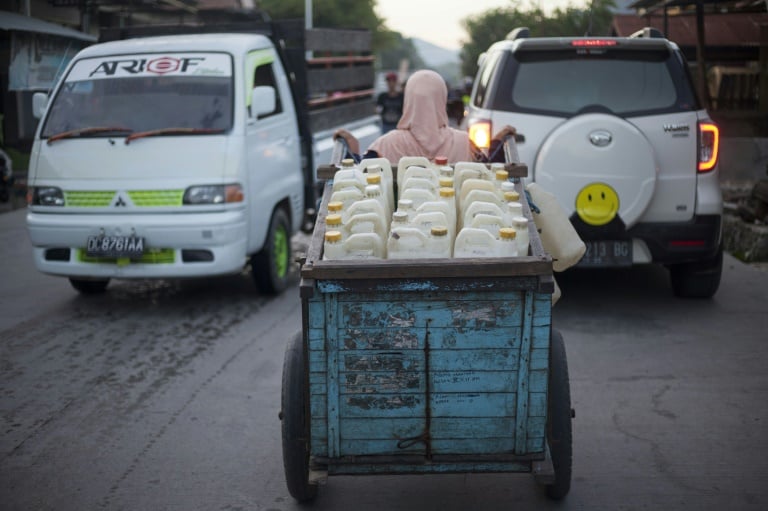Godrich Gardee replaces Floyd Shivambu as Malema returns for third term as EFF president
As a scorching sun beats down, Hasria makes the four kilometre (2.5 mile), hour-long trip along the murky Mandar river to clean water wells built along the riverbank.
There, the 46-year-old fills up her cans with clean water made drinkable by the surrounding soil which acts as a natural filter and purifier.
The work of Hasria and her fellow water collectors, who get paid about 500 rupiah (3.5 US cents) for each can, or $7 for the whole load, is vital for some 5,800 families in Tinambung district.

The work of water collectors like Rohana is vital for the families in her remote village where residents have long complained about limited access to clean water
Thursday is World Water Day, a UN initiative which this year focuses on “nature-based” solutions for sourcing potable water globally.
It is a challenge in Tinambung where residents have complained for years about limited access to clean water in the remote fishing village.
“We have to collect water from upstream for drinking and cooking,” Hasria said.
“Water in the village can only be used for bathing and doing laundry.”

Hasria earns about selling the 200 jerry cans of clean water she collects every day
Other communities struggle with similar challenges in Indonesia, which has myriad environmental problems and the dubious distinction of hosting the filthy Citarum river, which empties into the sea near Jakarta.
A decade ago, the World Bank declared it the most-polluted river in the world.
Faced with a health emergency after decades of failed clean-up efforts, the government is stepping in with the seemingly impossible goal of making the Citarum’s water drinkable by 2025.
Download our app and read this and other great stories on the move. Available for Android and iOS.